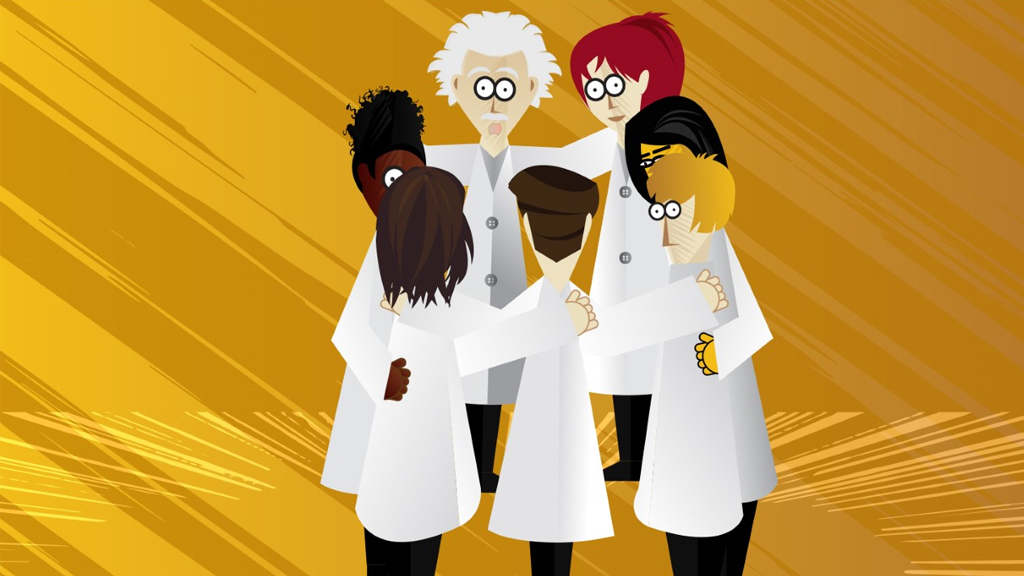Teamwork in healthcare
Oftentimes, a crisis can fuel people’s willingness to work together. Crises create a sense of urgency. They push us to put aside petty differences and work toward a greater good. In the age of coronavirus, that greater good is perseverance. A return to normalcy. Movie theaters. Concerts. Football. Handshakes and hugs. Humanity.
The workplace is a microcosm of this sense of unity.
Allison Traylor, a PhD student at Rice University, published her article, “Managing Teamwork in the Face of Pandemic: Evidence-Based Tips,” in an edition of BMJ Quality & Safety. The article explores ideas for encouraging teamwork in a healthcare setting.
“Front-line medical teams are experiencing unprecedented stressors as a result of the COVID-19 pandemic. In the face of these pressures, teamwork has become both more important and more challenging,” Traylor explained.
“Fortunately, numerous examples of naturally occurring cooperation are appearing at healthcare institutions around the globe, including instances of people trying to work together during the crisis who may not have done so under ‘normal’ conditions,” she continued.
Celebrate all successes
Cohesiveness can be tough to maintain at first during a pandemic. Your team might be in a state of confusion and disarray as to what your goals are. The reason it’s so tough is that a crisis puts a ton of pressure on you to perform and succeed. So that when you are faced with even a small failure during an emergency, you would be forgiven to feel demoralized. In the healthcare field, there is no greater demoralization or failure faced by medical professionals than patient mortality. It’s a grim reality. And it’s common for healthcare workers to blame themselves and even lose themselves a little. That’s the human in us.
“That is also precisely why it is imperative that we celebrate our successes, both big and small. It helps elevate morale, lift spirits, encourage us to keep giving our all with the hope that we are in fact making a difference,” Traylor explained.
Know your role
Taking a few minutes of every morning to define your roles helps anchor expectations. According to Traylor, team cognitions enable teams to coordinate together. This “shared mental model” (SMM) can be laid out in morning huddles or daily touchdowns within minutes. During these mini-meetings, a team can clarify goals, define roles and establish priorities.
Recognize everyone
It’s easy to show appreciation for the healthcare workers fighting COVID-19 on the frontlines whose face you can see. Doctors, nurses, administrators and assistants, for instance. These are the people often (rightfully) recognized by news media for their life-saving efforts.
But there are a number of people behind the curtain that deserve just as much recognition and don’t receive it. These are the healthcare workers that obtain supplies, monitor inventory, answer phones, or work with non-COVID patients to tend to their needs.
It’s important to celebrate, recognize and communicate the successes of everyone involved in the war against the virus. Doing so establishes a sense of cohesiveness and collegiality whereby everybody can feel like part of the same team. “It’s easy for people not working on COVID patients to feel like they aren’t as important as those who are. We can avoid this feeling of going unappreciated by celebrating the wins of everyone,” said Traylor.
Psychological security
Traylor concentrates on the importance of addressing failure in the workplace. Failure is like the space between notes in music. Without those spaces you don’t have a song. Without making mistakes, you won’t know how to improve and succeed. “Failure is as important as it is inevitable. That’s why it’s imperative that we discuss failure and, moreover, that we feel comfortable to discuss it with our coworkers,” Traylor said.
“There is a sense of psychological safety required in the workplace where healthcare workers should feel secure in talking about their mistakes and failures,” she continued.
Traylor mentions the importance of being honest about where one can improve in their performance. She says that feeling comfortable to discuss your mistakes channels the team’s energy toward fixing them. Everyone helps each other. In fact, Traylor claims that “psychological safety is among the strongest predictors of team success.”



